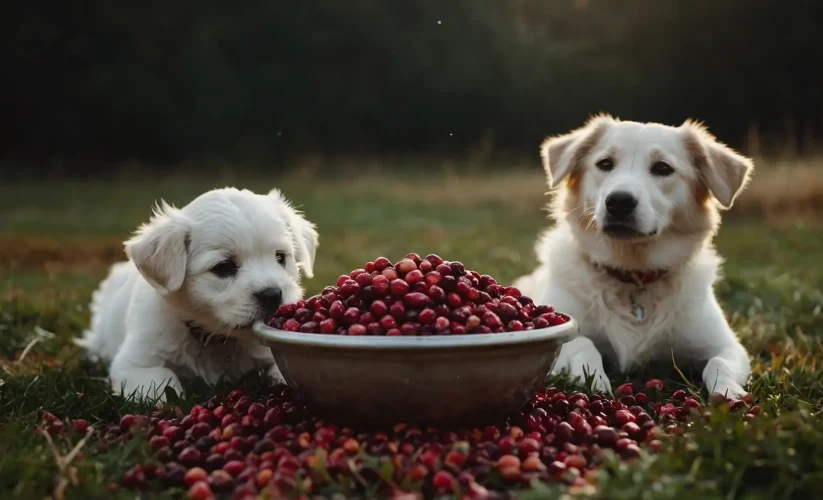Can Dogs Eat Cherries?

When it comes to sharing our favorite snacks with our four-legged friends, it’s essential to tread carefully. Not everything that’s delicious and nutritious for us is suitable for our dogs. Take cherries, for instance. These small, juicy fruits are a staple in many households, celebrated for their sweet, tangy flavor and health benefits for humans. However, when it comes to our canine companions, the question arises: can dogs safely enjoy cherries just as we do? “Can Dogs Eat Cherries?” aims to explore the compatibility of cherries with a dog’s diet, dissecting the potential benefits and risks. We’ll also touch upon other popular fruits like blueberries, avocados, and strawberries, to give dog owners a clearer picture of what’s safe and what’s not. So, before you share that bowl of cherries with your furry friend, let’s delve into the facts to ensure their safety and well-being.
Is Cherries Good for Dogs?
At first glance, cherries seem like they could be a healthy snack for dogs. After all, they’re rich in vitamins A and C, antioxidants, and fiber, which are beneficial components for humans. For dogs, these nutrients can support their immune system, improve skin and coat health, and aid digestion. However, the question isn’t about the nutritional content alone but how these fruits interact with a dog’s digestive system and overall health.
Cherries contain small amounts of cyanide within their pits, stems, and leaves, a natural toxin that can be harmful if ingested in significant quantities. While the flesh of the cherry itself is not toxic to dogs, the risk lies in the potential ingestion of these other parts. Therefore, if you choose to feed your dog cherries, it’s paramount to remove the pits and ensure they’re only getting the flesh.
Moreover, cherries can also be a choking hazard, especially for smaller dogs. The size and hardness of the cherry pit could cause an obstruction in their throat or further down the digestive tract. Therefore, while the nutritional benefits of cherries can be tempting, they come with a caveat that requires careful preparation and supervision.
Is Cherries Bad for Dogs?
While cherries can offer some nutritional benefits to dogs, the risks often outweigh the rewards. The primary concern with cherries is the cyanide toxicity risk from the pits, stems, and leaves. Cyanide poisoning, although rare, can lead to serious health issues such as difficulty breathing, red gums, and even shock. Additionally, ingesting whole cherries can lead to intestinal blockages, a severe and potentially life-threatening condition.

Furthermore, cherries are high in sugar, which can be problematic for dogs, especially those with diabetes or weight issues. A high-sugar diet can lead to obesity, dental problems, and even contribute to diabetes in dogs. Therefore, even when the pits are removed, cherries should be offered in moderation, if at all, to avoid these potential health risks.
Are Other Fruits Like Safe For Dogs?
When it comes to other fruits, there’s a mixed bag of safety and benefits. Blueberries are among the safest options for dogs. They’re high in antioxidants, vitamins A and C, and fiber, making them a nutritious treat that supports overall health without the risks associated with cherries. Blueberries are also small and soft, posing no choking hazard, making them a convenient snack.
Avocados, however, are a different story. They contain persin, a substance that can be toxic to dogs in large amounts. While the flesh of the avocado is generally safe in small quantities, the skin and pit can be harmful. Given these risks, many veterinarians recommend keeping avocados off your dog’s menu.
Strawberries are another safe and healthy option for dogs, in moderation. They’re low in calories and high in fiber and vitamin C. However, like cherries, strawberries are also high in sugar, so they should be given sparingly to avoid weight gain and other sugar-related health issues.
Final Thoughts
In conclusion, while cherries offer certain health benefits, the risks associated with their pits and stems make them a less-than-ideal choice for dogs. If you do decide to give your dog cherries, ensure they are pitted and offered in moderation. However, safer fruit alternatives like blueberries and strawberries can provide similar nutritional benefits without the associated risks. It’s always best to consult with your veterinarian before introducing new foods into your dog’s diet to ensure they’re safe and suitable for your pet’s health needs. Remember, when it comes to feeding our furry friends, it’s better to be safe than sorry. Keeping their diet safe, balanced, and tailored to their specific health requirements is the best way to show our love and care.










